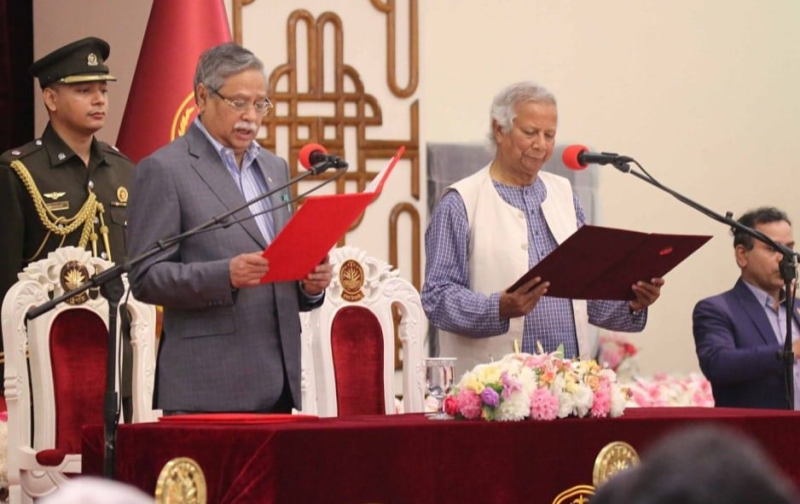- Hadi is no more, state mourning on Saturday: CA |
- Bangladesh capital market falls; weekly turnover lowest |
- Sharif Osman Hadi No More |
- Tarique Rahman to Return Home With Daughter on Dec 25 |
- ILO praises Bangladesh’s labour reforms, new milestones |
Interim Govt Marks One Year With Reforms, Stability

Interim government was formed one year ago following a mass uprising.
The interim government, led by Nobel Laureate Professor Dr Muhammad Yunus, completes its first year in office today. It assumed power on 8 August 2024, following the ouster of Sheikh Hasina’s regime on 5 August in a massive popular uprising that left many students and civilians dead or injured.
Guided by the aspirations of the July martyrs, the government has undertaken sweeping reforms in the electoral system, governance, press freedom, economy, judiciary, law and order, and the trial of those responsible for the uprising’s killings. On 5 August this year, it presented the July Declaration, while the July Charter—shaped through consultations with political parties and the National Consensus Commission—is in its final stage.
Marking the uprising’s anniversary, the Chief Adviser announced that the next parliamentary elections will be held in February 2026, before Ramadan. The Election Commission is expected to declare the poll schedule in the first half of December.
Over the past year, the government formed multiple reform commissions covering electoral, police, judiciary, anti-corruption, public administration, health, media, labour rights, and women’s affairs. Many recommendations have already been implemented.
Economic stability has also improved. Inflation fell to 8.48% in June—the lowest in 35 months—and food inflation is projected to drop to 6% by December. Despite severe floods last year, effective market monitoring prevented price surges and curbed middlemen influence.
Confidence among expatriates has boosted remittance inflows to a record $30.33 billion last fiscal year, while exports rose by 9%. The taka has strengthened against the dollar, foreign loan repayments have hit a record $4 billion in 11 months, and reserves are rising even after clearing past dues.

